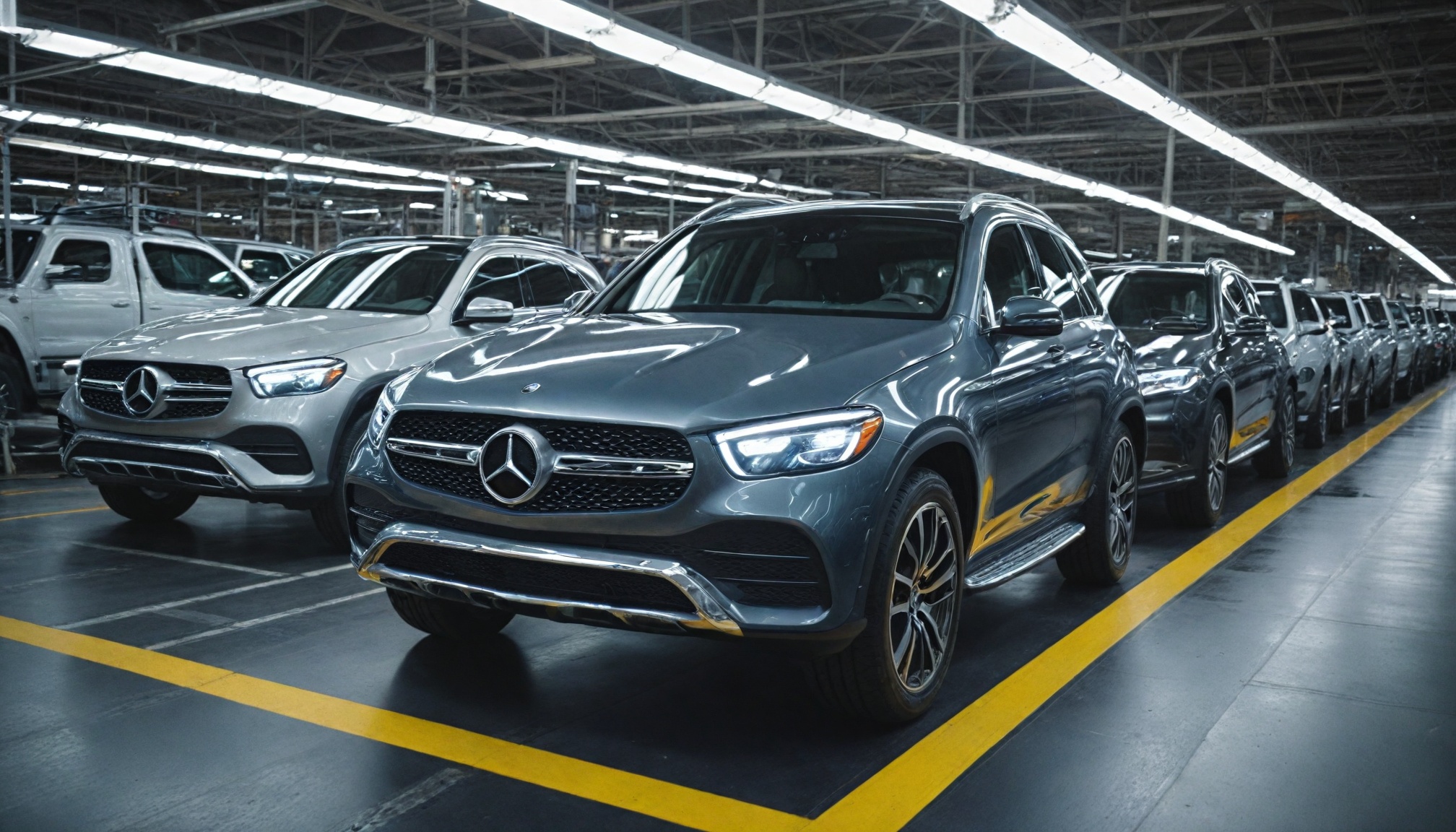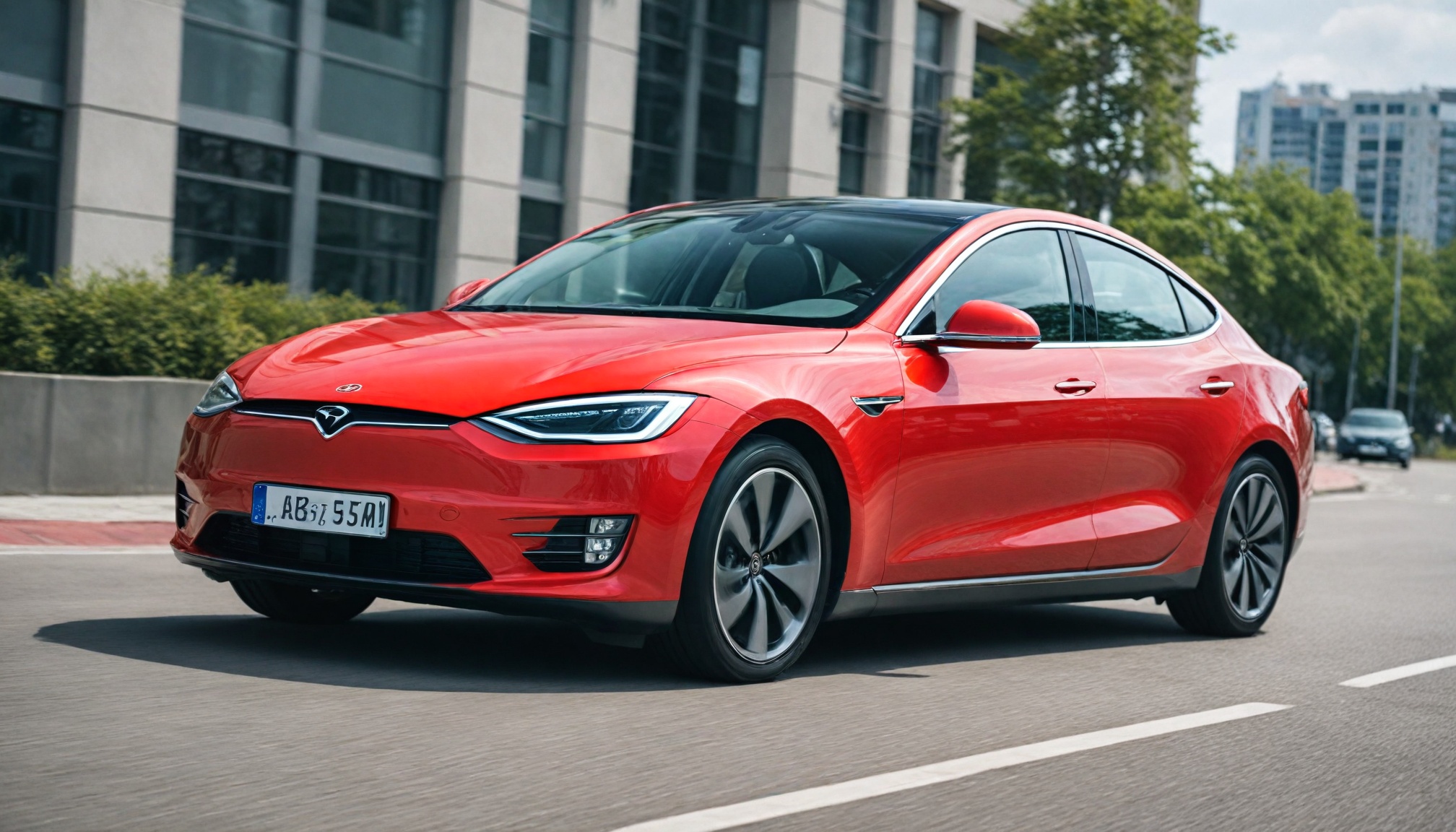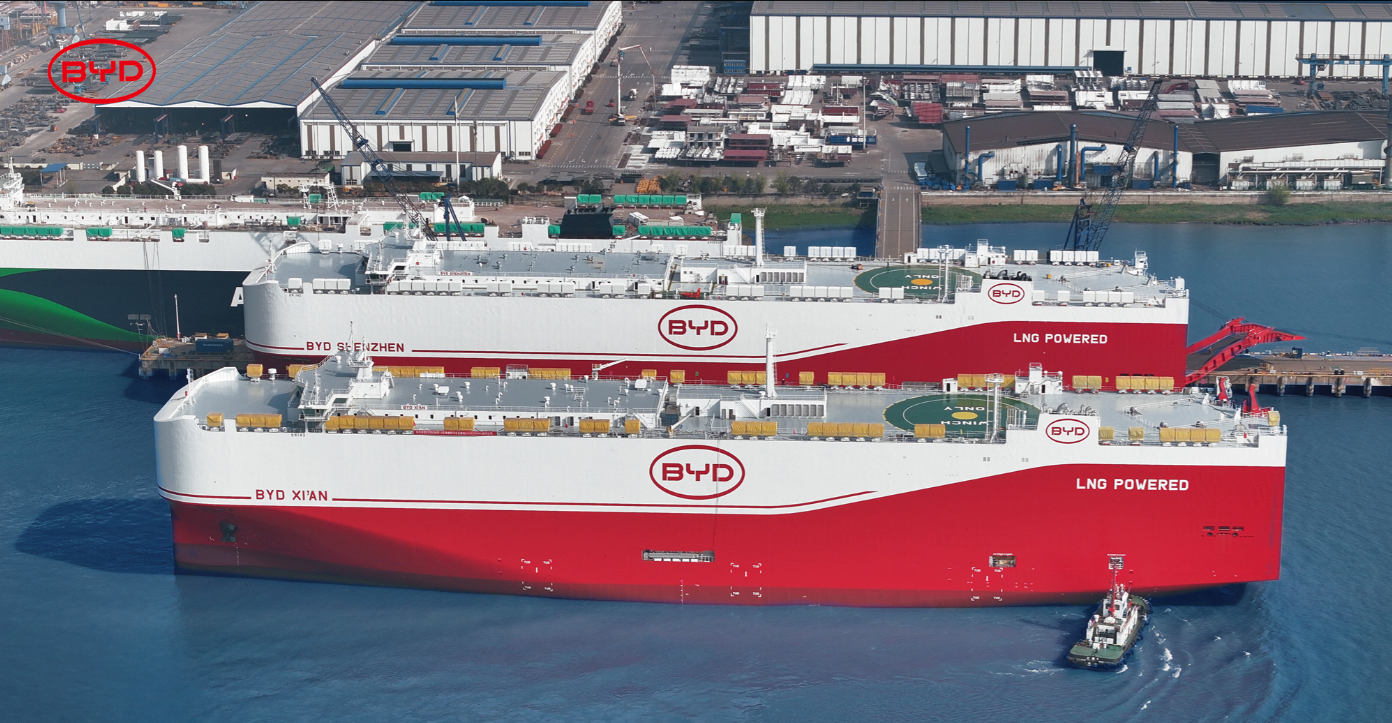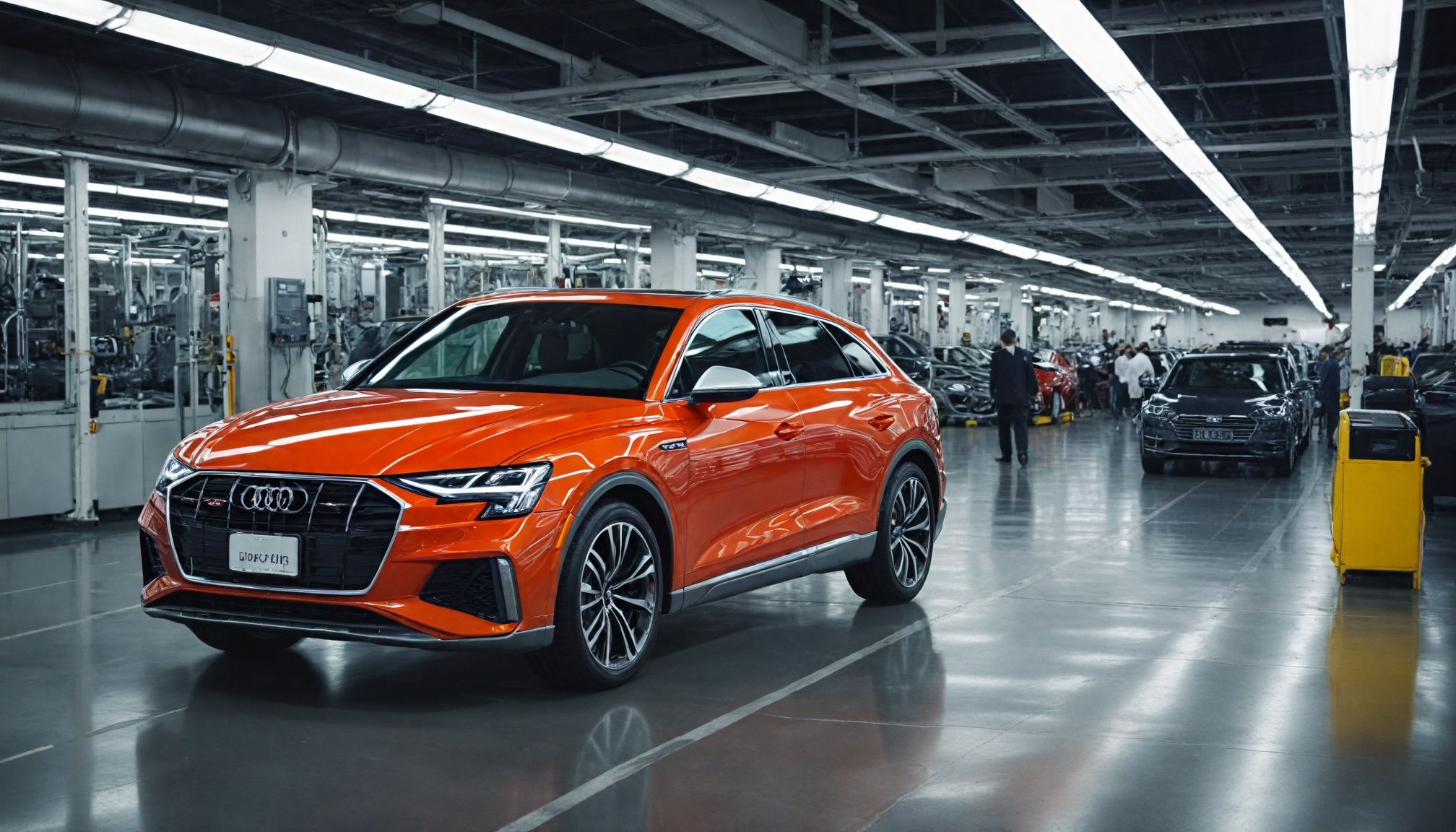
Audi explores US manufacturing options to combat Trump's 25% import tariffs, considering new plant, VW facility sharing, or converting Scout site in strategic market shift.

Drivetech Partners
Audi is actively exploring U.S. manufacturing options as a direct response to the 25% import tariffs implemented by the Trump administration in April 2025. The German luxury automaker is evaluating three potential manufacturing solutions while maintaining its financial guidance for 2025, explicitly excluding the potential impact of these significant tariffs from its projections.
Key Takeaways
Audi is considering three manufacturing options in the U.S.: building a new plant, using VW's Chattanooga facility, or converting the planned Scout facility in South Carolina
The company has temporarily halted U.S. vehicle deliveries that arrived after April 2, 2025, focusing on selling existing inventory of approximately 37,000 vehicles
The Q4 e-tron electric SUV is the most likely candidate for initial U.S. production due to its shared platform with the VW ID.4
Audi's decision represents a growing industry trend of European luxury automakers localizing production to remain competitive in the American market
The final manufacturing decision is expected later in 2025 as part of Audi's broader market strategy

Audi's Response to Import Tariffs
Facing a significant 25% tariff on imported vehicles, Audi has been forced to reconsider its entire U.S. market strategy. CEO Genot Döllner has carefully positioned this move as part of a long-term growth strategy rather than simply yielding to political pressure. The timing is critical, as the Trump administration implemented these tariffs on April 2, 2025, with different rates applying to various countries: 10% for the UK, 20% for EU countries, and a hefty 34% for China.
Currently, all Audi vehicles sold in the U.S. market are imported, primarily from European facilities in Germany, Hungary, and Slovakia, making the company particularly vulnerable to these tariff increases. The company has already taken immediate action by temporarily halting U.S. vehicle deliveries that arrived after the April 2 tariff implementation, focusing instead on selling its existing inventory of approximately 37,000 vehicles, which is expected to last about two months.
Three Manufacturing Options Under Evaluation
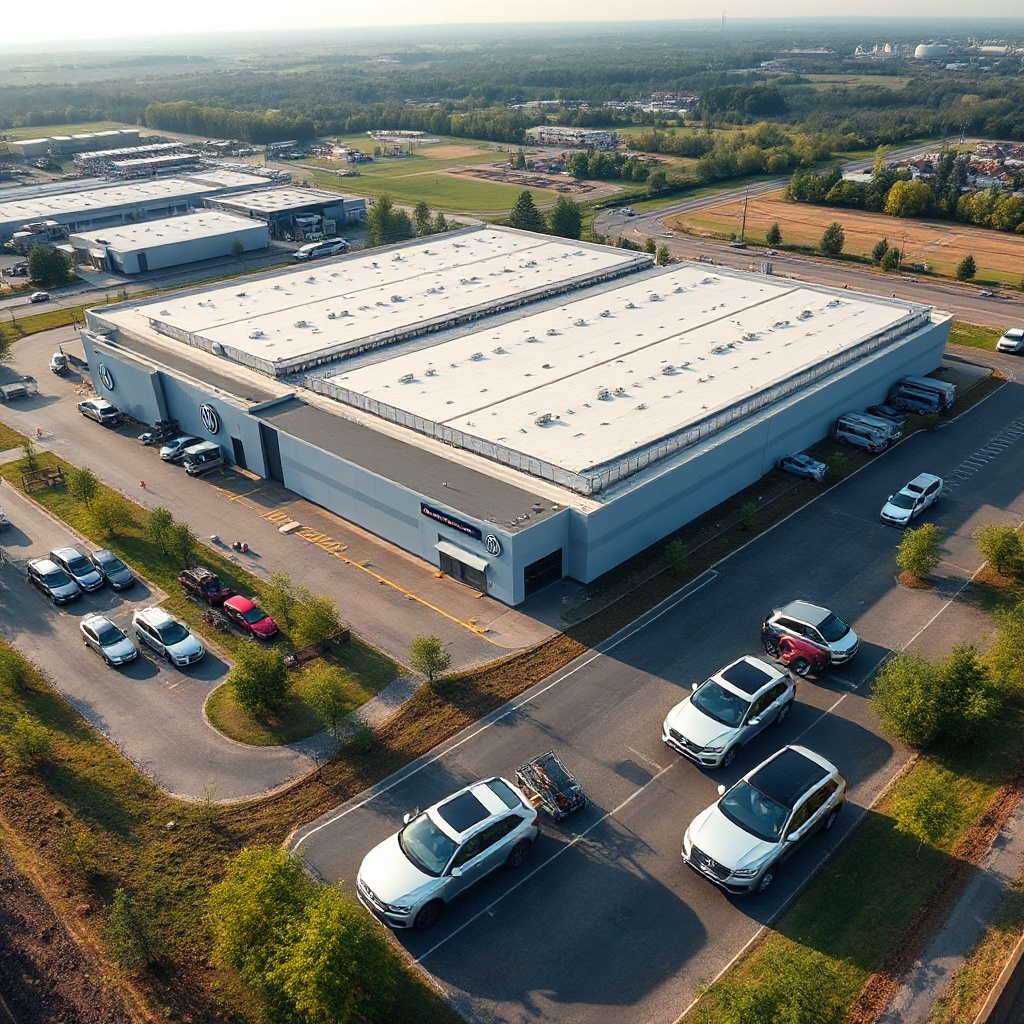
Audi is considering three distinct approaches to establish U.S. manufacturing, each with its own timeline and strategic implications:
New U.S. Manufacturing Plant: This option would require 3.5-4 years to become fully operational. Such a facility would likely be located near an existing Volkswagen facility to leverage established supplier networks, representing the most substantial but longest-term solution.
Leveraging VW Chattanooga Facility: This Tennessee facility currently produces the Volkswagen ID.4, Atlas, and Atlas Cross Sport. It could serve as a near-term solution while Audi finalizes its long-term production plans.
Converting South Carolina Scout Facility: The Blythewood site originally intended for Scout vehicles could be reconfigured for Audi production as part of VW Group's expanding U.S. manufacturing footprint.
Of the various Audi models, the Q4 e-tron electric SUV stands out as the most logical candidate for initial U.S. production, primarily because it shares the MEB platform with the VW ID.4 already produced at Chattanooga.
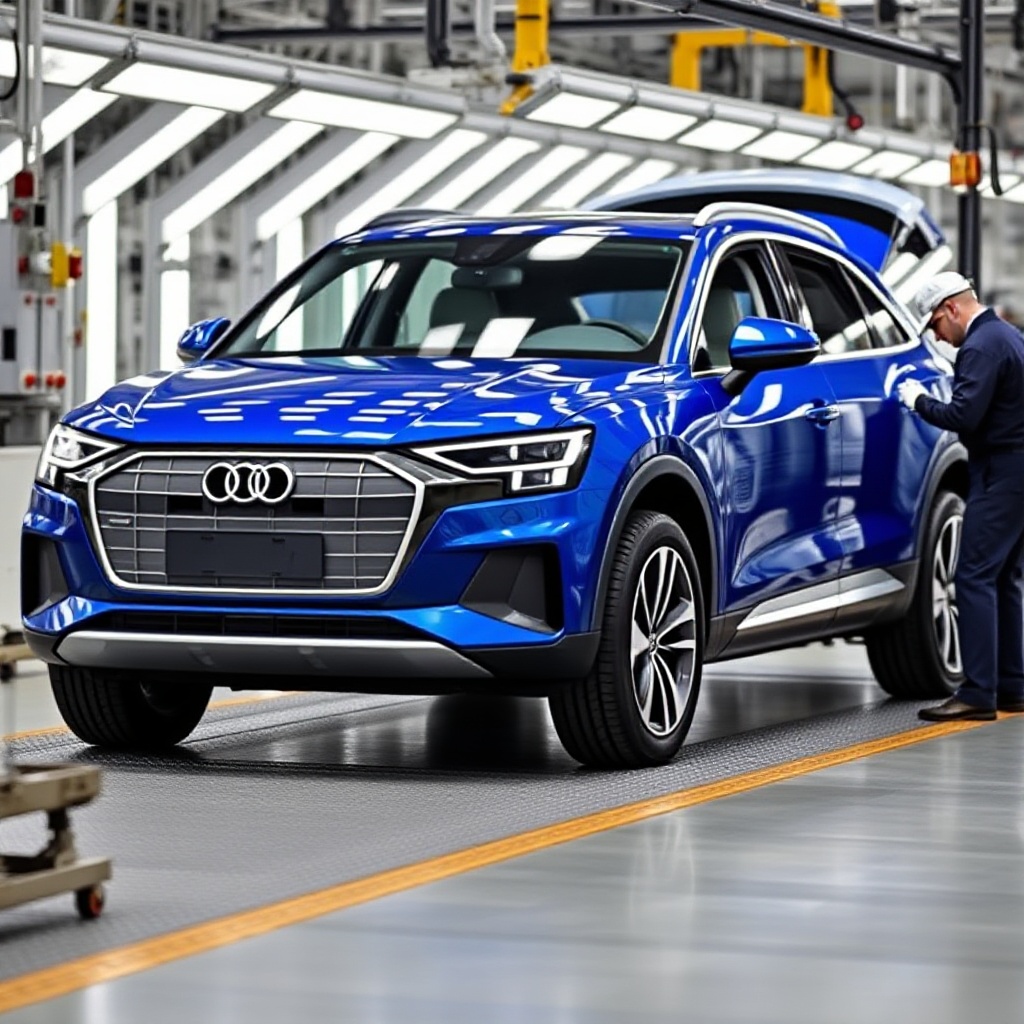
Financial Impact and Market Positioning
Despite these challenges, Audi has maintained its full-year 2025 financial guidance, though with an explicit exclusion of tariff impacts from its projections. The company's first-quarter revenue actually rose by 12.4% on higher sales of electric models, demonstrating resilience despite the tariff challenges.
Unlike its direct German competitors BMW and Mercedes-Benz, Audi currently has no U.S. manufacturing presence. Its current North American production strategy includes manufacturing the Q5 SUV in Mexico under the USMCA trade agreement, which provides some tariff advantages but doesn't completely address the new challenges posed by the recent import tariffs.
The company is exploring a combination of price increases and internal operational adjustments to mitigate the tariff impact while maintaining its competitive position in the luxury vehicle market.
Product Strategy and Platform Sharing Opportunities
Audi's U.S. production strategy will likely focus on volume models with platform-sharing capabilities. This approach maximizes efficiency by leveraging the Volkswagen Group's modular vehicle architectures across multiple brands:
The Audi Q4 e-tron shares its MEB platform with the VW ID.4, making it a logical candidate for U.S. production
The Volkswagen Atlas shares the MQB Evo platform with the Audi A3, creating another potential manufacturing opportunity
Expanding Chattanooga capabilities to include the MLB platform could enable production of the Q5, Q7, Porsche Cayenne, and even the Lamborghini Urus
This strategy focuses heavily on electric vehicles to leverage U.S. tax credits for domestically-produced EVs with North American battery components, an increasingly important factor in the competitive American automotive landscape.
EV Tax Credit Considerations
A major factor driving Audi's manufacturing decisions is the increasing importance of domestic production to qualify for U.S. EV tax credits. These credits now strongly favor vehicles with North American battery components, making localized production essential for maintaining competitive pricing against U.S. manufacturers.
Electric vehicle models will likely receive prioritization in Audi's U.S. manufacturing plans, recognizing the strategic importance of qualifying for these credits. This focus aligns with the broader Volkswagen Group's commitment to electrification while addressing the specific requirements of the U.S. market regulatory environment.
Long-Term Strategic Implications
Audi's decision represents a fundamental shift in strategy for European luxury automakers, who are increasingly being forced to localize production to remain competitive in the American market. The final manufacturing decision, expected later in 2025, will be part of Audi's broader market strategy.
The company has reaffirmed its commitment to expanding its U.S. footprint regardless of the tariff situation, suggesting that this move is part of a longer-term strategic vision rather than just a reaction to immediate political pressures. However, any new production facilities would take multiple years to implement fully, requiring careful planning and substantial investment.
Meanwhile, Audi will maintain its existing production of the Q5 in Mexico under the USMCA agreement, which continues to provide some tariff advantages. The company's approach demonstrates how global automakers must increasingly balance global production networks with local market requirements and political realities.
Sources
Autoblog - Audi may build future EVs in the United States due to tariffs
Jalopnik - Audi price tariff impact
CBT News - Audi eyes U.S. plant to counter auto tariffs
Audi Club North America - Volkswagen Auto Group considering US production sites for Audi, Porsche models
Automotive News - Audi US production tariffs
